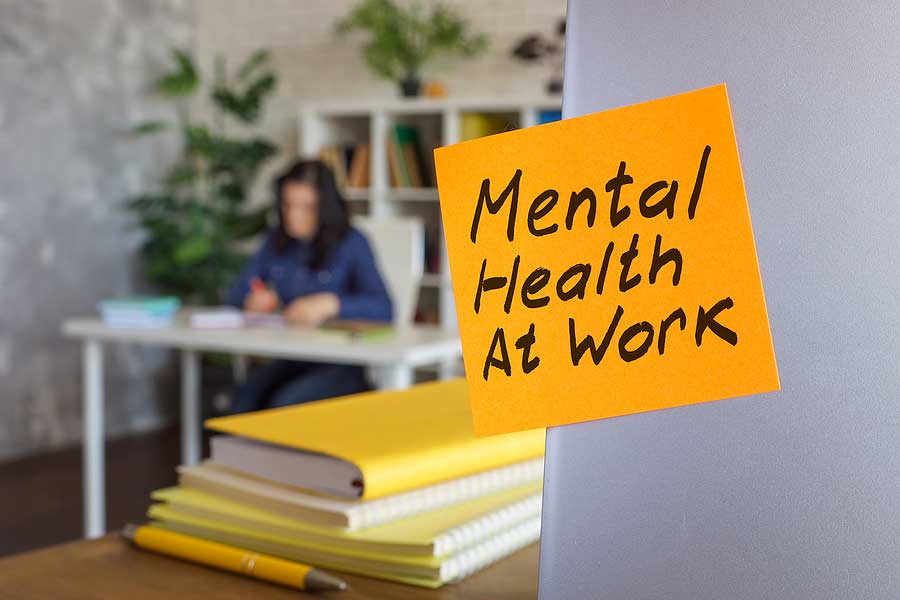Dealing with Work-from-home related stress

Many have cut out the long and often tedious commute over the last 18 months, we’ve been home early for dinner, been able to go the gym more (when open), wear whatever clothes we like for work, and, for the most part, have been left to organise ourselves away from the glare of the boss. If you told our ancestors about our current working conditions, I doubt they would believe us or consider it work at all. However, that’s progress, and I think people have worked harder than ever. Nevertheless, I think there are few people who haven’t in some way seen their mental health affected by restrictions and being at home day in day out.
The benefits of working from home could be enormous. I’m a huge advocate for hybrid working being the norm going forwards. I think it’s the model most firms are adopting and I hope it will provide us all with the variety, flexibility, and autonomy to make work fulfilling. I think it will help working parents, and being able to recruit from wider geographical areas will open up new talent pools for firms. So whilst I don’t think it will be without its initial challenges, the benefits should outweigh the negatives. There is, though, no perfect working model and this too won’t be perfect and will need to be carefully navigated.
Want to receive future insights & research to your inbox? Subscribe to our newsletter!
Whatever the model, we have entered a new era of work. An era that will need new skills from leaders, where they may not get the chance encounters to ask how someone is, where interaction is quite often through a computer screen. It’s also an era where leaders will need to place high levels of trust in all colleagues, even those they have only worked with for a short period of time. It’s here that we encounter one of the main causes of stress home workers have felt. Whether intentional or not, many workers have felt more monitored working remotely than when they’re in the office. Managers checking in constantly can cause stress and irritation. The reality is that mostly people will be at their desk, but what happens if they’re making a cup of tea, take a walk, or happen not to be at their desk when a manager calls? Making a cup of tea in an office is normal, but to a controlling manager not answering a video call could be construed badly. Finding perspective can be hard to when isolated and alone. A difficult project where the deadline may be missed is something that happens in offices across the country, but when alone it can feel more of a disaster than it ought to.
There are of course more serious matters than being monitored or missing a deadline. Earlier in the year, the charity Rights of Women found in their survey that women had seen an upsurge in online sexual harassment whilst working from home. It’s bad enough in an office, but I should imagine feeling uncomfortable in your home must be awful, and HR teams and leaders will need to develop procedures to adequately deal with these new types of harassment.
However, I think the main source of stress comes from the “always on” culture working from home, technology, and COVID has ushered in. Teams may now all be working at different times and emails may be sent at all times of the day. The computer is only next door and during lockdown when there was little else to do, many decided to work more. Many have exchanged a long commute and the separation of work and home for no commute, but as Alison Brittain, the CEO of Whitbread, called it “work/life blur”.
Many of us are still learning about home working. However, in my role as a recruiter, I’m lucky to speak to a wide variety of people, and I think some things seem key to successfully working from home and ensuring that the stresses of work don’t overwhelm you. Firstly, you must have a good workspace. Younger people have really struggled working from home in my experience. It’s not that they too don’t like flexibility, but so many live in flatshares and they don’t have an adequate workspace. Secondly, you must try and switch off. The world may now be “always on”, but you can’t be, and doing something other than work is good for you. I’d also urge colleagues to have virtual break out meetings. To have a coffee together just as they would in the office to ensure the feeling of camaraderie is still there. It’s so easy to feel disconnected from a firm when you’re at home. It’s in this area we feel days in the office will take on a different feeling than in the past with teams using the time to socialise and collaborate more than in the past.
My own view is that the office isn’t dead, but it’s futile to fight the change that has happened. If we can make hybrid working the norm and productivity increases, then we may well see some real positives. In the initial stages of the pandemic, managers had one thought – the safety of their teams. Whilst the immediate danger dissipated over time, firms will be judged on how well they support their colleagues moving forwards and home working isn’t a silver bullet. This responsibility will extend well beyond the four walls of the office and leaders will have to work harder to ensure mental health doesn’t suffer.

About Fram Search
Established in 2010 by Simon Roderick, a recruiter with 20 years City recruitment experience, Fram Search is a specialist financial services recruitment consultancy. We focus on permanent and interim recruitment in the UK & internationally.
We provide high quality contingent and retained recruitment to boutiques and global brands. We have long established relationships and access to deep talent pools. Fram takes a highly consultative approach, and we have a quality over quantity ethos. We are proud that our contingent fill rate is nearly three the industry average and we augment our retained search methodology with rigorous psychometric testing. Champions of diversity & inclusion, all staff have undertaken unconscious bias training.
Please contact us on 01525 864 372 / [email protected] to learn more.
Share this Post
